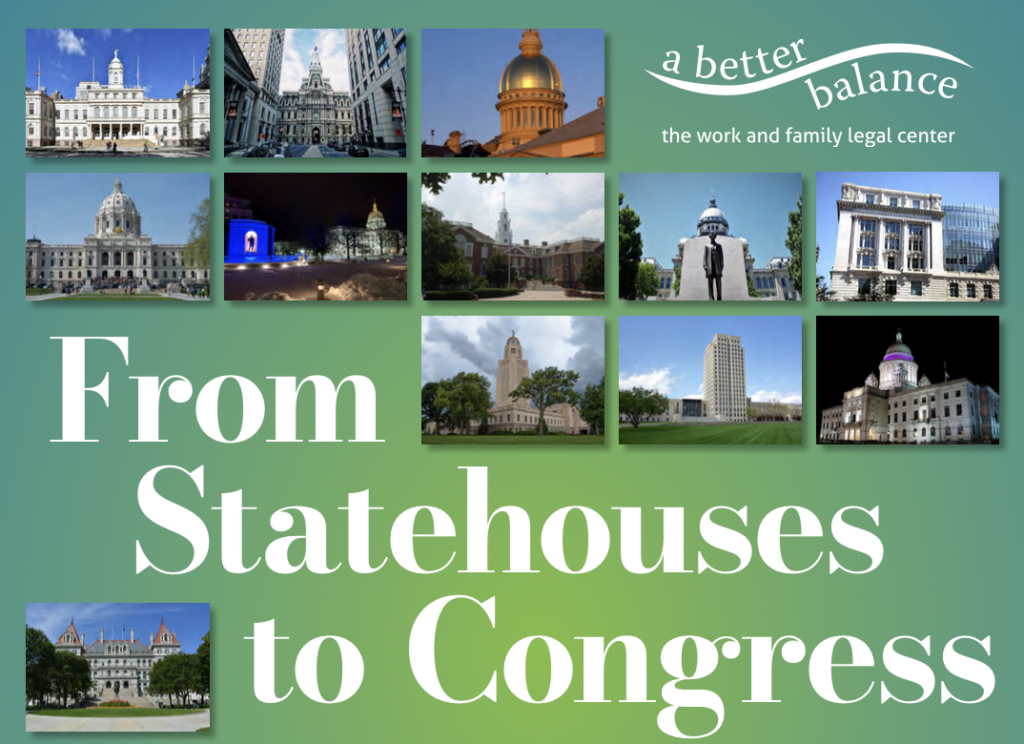About This Report
In 2019, A Better Balance published our report, “Long Overdue.” In essence, the publication was two reports in one—the first half articulated the stunning finding that two-thirds of pregnant workers had lost their Pregnancy Discrimination Act accommodation claims in court post-Young v. UPS, clearly articulating the gaps in the law and legal case for the Pregnant Workers Fairness Act. Shortly after publication, the U.S. House of Representatives held their first hearing on the Pregnant Workers Fairness Act and called it “Long Over Due.” Dina Bakst, A Better Balance Co-Founder and Co-President, testified at the hearing as the legal expertfor the Committee majority.
The second half of A Better Balance’s 2019 report, “Long Overdue,” provided a comprehensive review of state legislative history from the states that have passed these laws since 2013—everywhere from South Carolina to Kentucky to Nebraska to West Virginia—making clear that this country was ready for the federal Pregnant Workers Fairness Act: one uniform standard.
Now, we are republishing and updating the state-by-state legislative history section of “Long Overdue” including information from the six states (Oregon, Maine, New Mexico, Virginia, Tennessee, and Louisiana) that have passed Pregnant Workers Fairness Act legislation since our first publication of “Long Overdue.”
As before, this report lifts up voices from state lawmakers and stakeholders to provide both a lesson and roadmap to Congress: pass the federal Pregnant Workers Fairness Act to combat discrimination and promote the health and economic security of pregnant workers and their families.
Every one of the state-level accommodation laws that have passed since 2013 passed with bipartisan, and in many cases, unanimous or near unanimous support. Moving in chronological order from those cities and states that have passed laws from 2013 onward, this report includes information from those state lawmakers and business groups who recognized the need to pass these laws, and those who recognized the many health, economic, and government benefits Pregnant Workers Fairness Act laws bring to workers, employers, and the state.
Read the full report below, or click here to download a PDF version of this resource.

